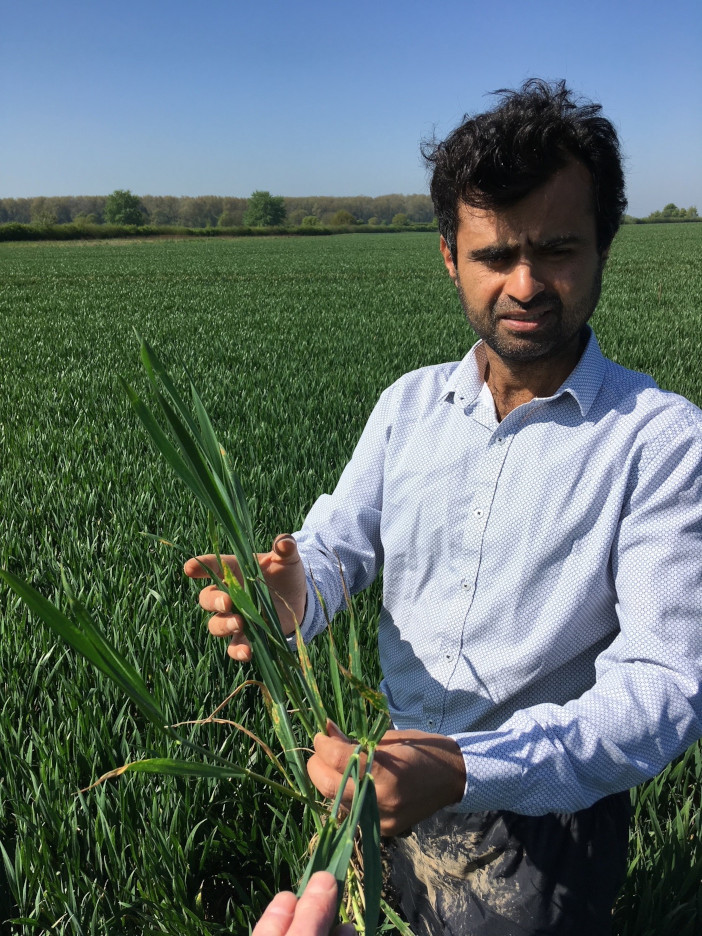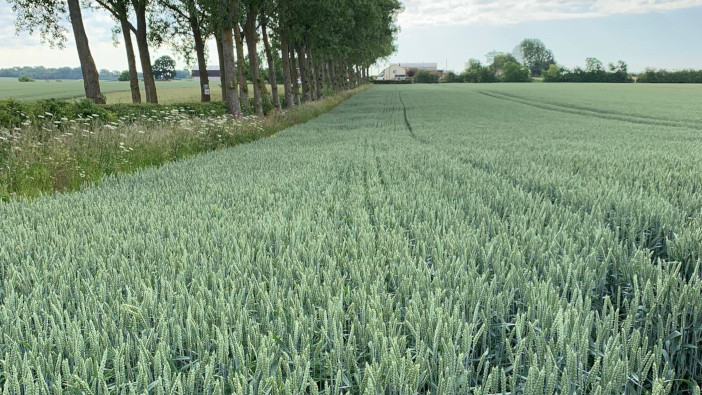As the cost of fertiliser, inputs and energy prices increase, winter wheat varieties with inherently higher protein are seeing growing interest from farmers, according to Cope Seeds and Grain.
The company states that Nelson has a high nitrogen use efficiency, achieving at least 13% protein with a reduced nutrition programme, with fewer fungicides due to its strong disease profile.
Dr Syed Shah, NIAB regional agronomist for the south and technical innovation lead, said that Nelson is a ‘low risk’ winter wheat. “Varieties with high inherent protein are going to be more readily planted in the UK and Nelson is an important winter wheat which has a naturally high protein and strong disease profile, meaning it’s lower risk for farmers.

“Generally, wheat crops require higher nitrogen inputs to boost yield and grain protein,” says Syed. “For example, adding 50 kg/ha of nitrogen (N) to a base fertiliser rate of 175 kg of N/ha will give a yield response of 0.25 t/ha on average.
“With a grain price of £300/tonne and nitrogen at £2/kg (prices as of late July 2022), an extra 50 kg/ha of N will cost £100, and with a yield response of 0.25 t/ha, you’re only getting £75/ha back for that extra N,” he said.
Dr Shah provided an example to illustrate the volatility that farmers are used to with most cereal varieties. “If it’s a dry year, like this one, nitrogen applied to boost protein won’t be taken up by the crop, so any N wouldn’t increase yield or protein.
“We should be growing crops with inherently higher protein, and Nelson is performing well in this regard, in fact, it can produce 13.3% – 14% protein in untreated plots.
“Nelson isn’t susceptible to yellow rust, or brown rust, so at T0, T1 stage, it doesn’t need a robust input programme, nor does it need a T2 treatment for Septoria, but since it’s a milling wheat, appropriate protection needs to be applied to reduce the risk of fusarium at flowering, especially in wet seasons.”
Benefits to growers
Gordon Treharne rears beef cattle and sheep, alongside his sons David and John, across 220 hectares in Northamptonshire.
“We grow 60 hectares of Nelson, which has proven to be a strong second wheat and we supply Heygates Miller with grain, which gets a premium at 14% protein, and which isn’t difficult to achieve.
“It costs less to grow, and it is vigorous with a strong root mass, which means it’s a good natural weed suppressant. It’s suitable for direct drilling and is more tolerant to stress than most varieties, and has proven to be very consistent,” he said.
Mr Treharne added that Nelson is a tall variety, with the straw being used for the livestock. “We graze the Nelson in early spring with ewes and lambs.
“We use less nitrogen each year to see what we can get away with and still get a good yield and protein over 13%. Even if we don’t reach 14%, and we don’t get a premium, it costs much less to grow it.”
According to Cope Seeds, Nelson can earn a premium over normal group one premiums thanks to its high quality and Hagberg falling number. It also offers a wide drilling window, early harvest, tall and stiff straw and a high untreated yield.


